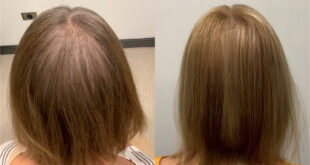Neurofeedback Helps Anxiety in Children without Medication
by Michael Cohen, Director Center for Brain
 It’s a startling fact: One in every 10 children has an anxiety disorder, and many of those children are being given powerful drugs to try to treat it.
It’s a startling fact: One in every 10 children has an anxiety disorder, and many of those children are being given powerful drugs to try to treat it.
Anxious children are different from kids with normal fears
Anxiety and fear are a normal state of mind when there’s a true threat or danger. For most people, when the danger has passed, the mind goes back into a calm state.
An anxious child’s brain, however gets stuck on “high alert,” preventing them from concentrating, trusting people or feeling safe.
Normal kids might get anxious after seeing a scary movie or being in a thunderstorm, but they get over it quickly and resume normal activities. Anxious children (and adults, for that matter) feel very unsafe in the world –
even when in a safe environment. They’re often socially withdrawn, scared of new experiences and perceive negative situations as catastrophic. Comforting doesn’t work, because anxiety is a problem in their brain.
Younger children suffering from anxiety frequently have stomachaches and sleep problems. They struggle in school. Older children may also do poorly in school and be more likely to have serious behavioral and sleep issues.
Misdiagnosis and powerful drugs
Many children with an anxiety disorder are misdiagnosed with ADHD and given medications that are not appropriate. Others are properly diagnosed and given drugs like anti-depressants or more serious drugs that don’t address the root of the problem: inability to turn off the fear or anxiety circuits in their head.
Medications can artificially force a child’s brain to be calmer, but when the medication wears off, nothing has changed. Furthermore, they have side effects, and no one knows for sure what certain prescription medications do to a child’s developing brain.
The neurofeedback solution
With medications not the answer, more and more parents are opting out of drug therapy in favor of neurofeedback. It’s a proven non-drug treatment that reduces anxiety by training the part of the brain that is supposed to make you calm (often the temporal lobe) to do a better job. It gently encourages the brain to change itself and to operate – naturally – in a calmer, more functional way.
Success stories
We’ve treated hundreds of kids at Center for Brain using neurofeedback, and seen many of them experience significant improvements in their lives. Here are stories of three of them:
An eight-year-old boy had struggled with going to sleep and staying asleep for years. He woke his mother up several times during the night and wanted her to sit up with him until he fell asleep. They were both exhausted. After just one neurofeedback session he slept through the night for six months. A thunderstorm at that point caused a recurrence of the sleep issues, which were significantly reduced with a second session.
A 13-year-old girl was so anxious and nervous at school that her mother was called almost daily to come get her. This interfered with the mother’s work and was stressful to the entire family. After six neurofeedback sessions the number of calls from school was significantly reduced, and the girl herself noticed she was less nervous. By 13 sessions, the problems had almost completely subsided. When the girl did call from school, she was able to be comforted over the phone and resume her classes. After several more sessions, the calls stopped. The little girl learned she was “OK” on her own and was no longer easily upset. She began doing better in school, and the family began functioning more normally.
A 10-year-old girl needed to be in complete control at all times around other children. She became agitated when she wasn’t. It was a big turnoff to her peers. After 20 neurofeedback sessions she stopped needing to be in control. She became more relaxed and flexible and made friends for the
first time.
Did you know that many children with an anxiety disorder come by it “naturally?” A child who has a parent with an anxiety disorder has a greater chance of developing one. It could have to do with a genetic disposition or the fact that anxious parents accidentally “teach” anxious feelings and behaviors through example. It’s common for us at Center for Brain to work with parents and their children at the same time to help reduce anxiety in both.
What is neurofeedback?
Neurofeedback is one of the most powerful technologies in the world for reducing anxiety. It helps the brain get “unstuck” from high gear and operate the way it should when going about day-to-day living.
Neurofeedback takes advantage of “neuroplasticity,” the brain’s ability to change itself. It teaches the brain another way to respond to stimuli like everyday triggers.
Most children enjoy neurofeedback training because it involves playing simple video games that entertain them while helping their brains change.
A computer analyzes the brainwaves, then “talks back” to the brain using customized sounds and images. This feedback encourages positive brain activity such as relaxation, focus and attention and discourages the type of brain activity that causes anxiety. With repeated training, the brain learns to slip more easily back into a state of calm.
Have you been seriously considering getting help for your anxious child?
Don’t Wait One More Day!
Call NOW for your free consultation 561-744-7616
Michael Cohen, Director
Center for Brain
Mike Cohen is a leading expert in brain biofeedback. For over 20 years he’s worked with clients, taught courses and provided consulting to MD’s and mental health professionals around the world, helping them incorporate into their practices new biofeedback technologies for chronic pain, anxiety and mood disorders, ADHD and neurological problems.
Center for Brain is located at:
550 Heritage Drive, Suite 140
Jupiter, FL 33458
561.744.7616
www.CenterforBrain.com
Check Also
The Latest Technology With Hearing Aids
Many modern electronic devices these days come equipped with Bluetooth technology. This feature lets you …
 South Florida Health and Wellness Magazine Health and Wellness Articles
South Florida Health and Wellness Magazine Health and Wellness Articles




